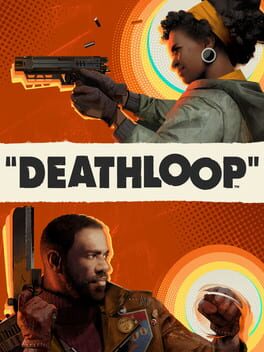This review contains spoilers
I will forever be impressed that when Bethesda told Arkane to stop making immersive sims, it appears that Arkane went and said “How about we do anyways?” There are compromises to be certain, but for my money, the majority of these compromises were to Deathloop’s benefit. The easy combat allows for freeform experimentation and on-the-fly thinking, which works in tandem with the stringent, stingy save system to make utilizing the dashes, slides, kicks, powers, and tools a thrilling affair. Furthermore, having the note-reading and email sleuthing that defines the genre all contribute toward a clearly defined goal is a brilliant structural decision, satisfying both narrative curiosity and ludic priorities in one fell swoop. While not as liberating as contemporaries such as Hitman and Outer Wilds, Deathloop is still a fantastic example of utilizing repetition in level design to develop competency and mastery alike, and how inventive structure can facilitate dynamic and thrilling play.
However, if there’s an element dragging Deathloop down, it’s the terrible story. To be certain, the story has some excellent component parts. The sense of style and flavor, the worldbuilding, and the surface-level characterization are all delightful and distinctive. However, when you dig into the story’s core; the character motivations, and the central conflict, it’s a disaster. The primary problem is the withholding of Colt’s motivation until a few sentences are revealed in the final cutscene, which saps the story of a tangible conflict to invest in. Connected to this is the bizarre plot twist that Colt is Julianna’s father, which I had held out hope would be retconned as a parody of Bioshock Infinite. This twist robs the game of its flirtatious fun banter and left a gross taste in my mouth, especially since my game occasionally kept giving me randomized dialog where Colt sexualizes Julianna after the twist. Worse yet, from this vector of the plot emerges troubling subtext where the story twists itself into knots in order to create a situation where Colt can murder her daughter every day for her own good. When finally Colt articulates that he wanted Julianna to be free of the time loop so she can grow as a person, the nobility of this goal only comes across as abuse apologia, which wouldn’t be so bad if the game was actually interested in confronting and dramatizing this aspect of Colt’s character instead of tacitly justifying it. As much as I do love the rest of the game surrounding this element, as indicated by the high score I’ve given it, I can't help but be immensely frustrated at it and increasingly yearning for the day when Arkane’s stories are finally on par with their worlds.
However, if there’s an element dragging Deathloop down, it’s the terrible story. To be certain, the story has some excellent component parts. The sense of style and flavor, the worldbuilding, and the surface-level characterization are all delightful and distinctive. However, when you dig into the story’s core; the character motivations, and the central conflict, it’s a disaster. The primary problem is the withholding of Colt’s motivation until a few sentences are revealed in the final cutscene, which saps the story of a tangible conflict to invest in. Connected to this is the bizarre plot twist that Colt is Julianna’s father, which I had held out hope would be retconned as a parody of Bioshock Infinite. This twist robs the game of its flirtatious fun banter and left a gross taste in my mouth, especially since my game occasionally kept giving me randomized dialog where Colt sexualizes Julianna after the twist. Worse yet, from this vector of the plot emerges troubling subtext where the story twists itself into knots in order to create a situation where Colt can murder her daughter every day for her own good. When finally Colt articulates that he wanted Julianna to be free of the time loop so she can grow as a person, the nobility of this goal only comes across as abuse apologia, which wouldn’t be so bad if the game was actually interested in confronting and dramatizing this aspect of Colt’s character instead of tacitly justifying it. As much as I do love the rest of the game surrounding this element, as indicated by the high score I’ve given it, I can't help but be immensely frustrated at it and increasingly yearning for the day when Arkane’s stories are finally on par with their worlds.
